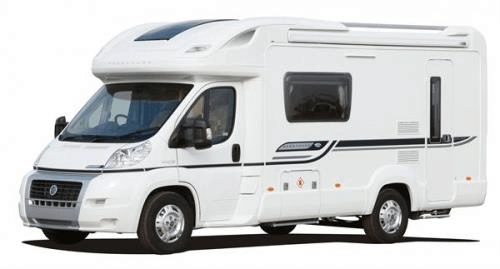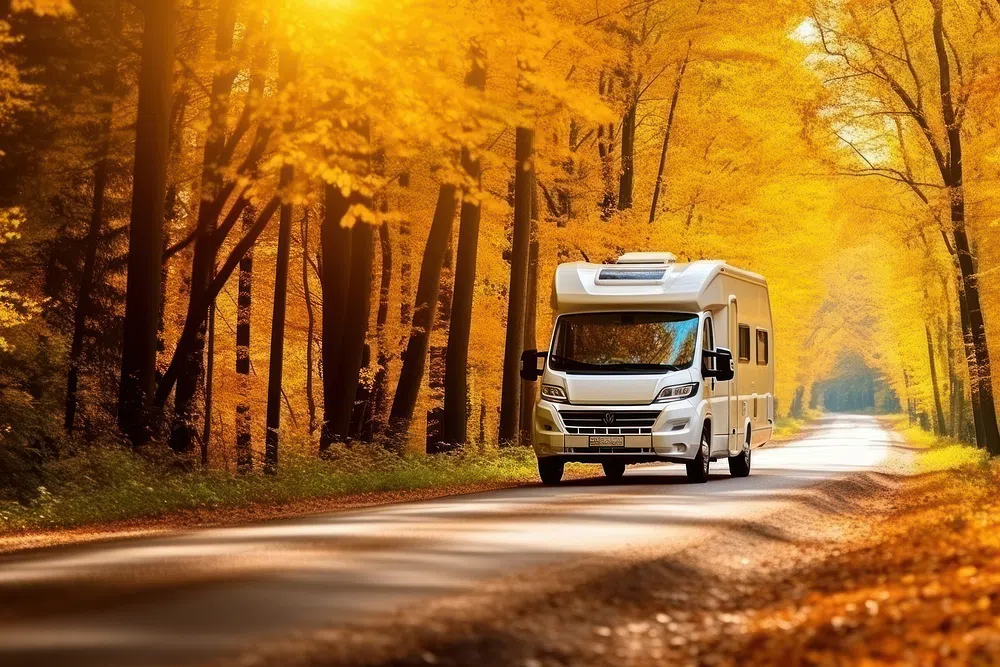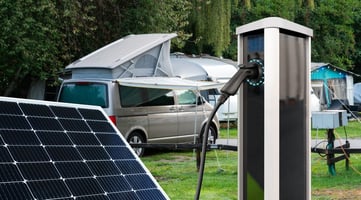The Electric Dream Hits the Road
We know that travelling the country - or indeed the world - in a motorhome offers the appeal of adventure and the freedom to explore new surroundings on your own terms. But, like any form of travel, it does come with an environmental footprint. In this blog post, we’ll dive into the environmental impact of motorhome travel and explore the many ways in which you can make your journeys more sustainable.
So, what could the environmental impact of motorhome travel be?
Fuel consumption:
Motorhomes typically consume more fuel than smaller vehicles due to their size and weight. This results in higher greenhouse gas emissions, which contribute to climate change.
How to mitigate this:
If possible, choose a motorhome with better fuel efficiency in terms of mpg (miles per gallon) and lower emissions, and consider opting for a hybrid or electric model as they become available. Practice eco-driving techniques, such as smooth acceleration and braking, to reduce fuel consumption and emissions. Plan your routes accurately to minimise driving distances.
Resource consumption:
You may be on the move but motorhomes still require resources such as water and electricity, and they generate waste, which can strain local ecosystems and resources if not managed responsibly.
How to mitigate this:
Opt for renewable energy by considering equipping your motorhome with solar panels or a portable wind turbine to generate renewable energy - many of these are super small and they are generally very quiet and efficient at doing the job. You can also save costs in the long run by not needing to use a mains hook up. Be mindful of your water and energy usage. Use LED lighting, turn off appliances when not in use, and conserve the water used by having shorter showers and practising efficient dishwashing.
Campsite overcrowding:
Popular camping destinations often face overcrowding issues due to the increasing popularity of motorhome travel, leading to environmental degradation and habitat disruption.
How to mitigate this:
Do some research into sustainable campsite locations and seek out those places that prioritise sustainability. Look for locations with eco-friendly facilities and practices, like recycling and renewable energy sources. You could think about exploring less-travelled areas and, if safe to do so (and permitted by law), you could have a go at wild camping! Remember the rule though, if you do - leave no trace.
Waste generation:
Managing waste, including sewage and general rubbish, can be challenging for motorhome travellers, yet improper disposal of our waste items can harm the environment.
How to mitigate this:
Dispose of all your rubbish responsibly - use the designated stations provided on campsites and recycle when available. Take bin bags with you so that you can keep it contained in one place. Avoid littering or leaving any waste behind, taking it back home with you if necessary.
Motorhome travel allows you to experience the world in a unique and personal way, but it’s essential to be aware of the environmental impact. Being part of the movement to encourage responsible tourism, and supporting initiatives aimed at preserving the beauty of the destinations you visit can only be a good thing.
By making conscious choices and practicing eco-friendly behaviours, you can minimise your carbon footprint and contribute to the preservation of the natural beauty that is there for all to explore. Travelling in a motorhome doesn’t have to be at odds with environmental responsibility – it can be an opportunity to appreciate and actively protect the world’s wonders for generations to come.








